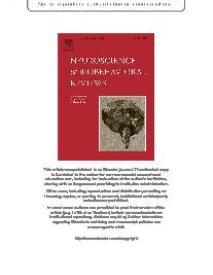Psychobiology of posttraumatic stress disorder in pediatric injury patients : A review of the literature
Research suggests that about a quarter to a third of children with traffic-related injuries develop posttraumatic stress disorder (PTSD). Early symptoms of PTSD have been found to predict poor mental and physical outcome in studies of medically injured children. However, these symptoms are rarely recognized by physicians who provide emergency care for these children. In addition, there is insufficient knowledge about predictors of posttraumatic stress symptoms in this specific pediatric population. Early identification of those children at particular risk is needed to target preventive interventions appropriately. After some introducing remarks on the classification and the nature of posttraumatic stress reactions, current research findings on psychological and biological correlates of PTSD in pediatric injury patients are presented. The particular focus in this paper is on the neurobiological mechanisms that influence psychological responses to extreme stress and the development of PTSD. Continued study of the psychobiology of trauma and PTSD in pediatric injury patients, both in terms of neurobiology and treatment is needed.
Geachte bezoeker,
De informatie die u nu opvraagt, kan door psychotraumanet niet aan u worden getoond. Dit kan verschillende redenen hebben,
waarvan (bescherming van het) auteursrecht de meeste voorkomende is. Wanneer het mogelijk is om u door te verwijzen naar de bron
van deze informatie, dan ziet u hier onder een link naar die plek.
Als er geen link staat, kunt u contact opnemen met de bibliotheek,
die u verder op weg kan helpen.
Met vriendelijke groet,
Het psychotraumanet-team.
In: Neuroscience & Biobehavioral Reviews ISSN: 0149-7634 | 32 | 1 | 161-174
https://doi.org/10.1016/j.neubiorev.2007.07.002


